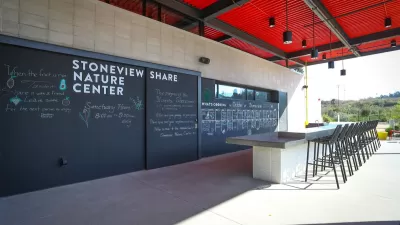A newly released report by the National Recreation and Park Association (NRPA) reveals the state of diversity, equity, and inclusion (DEI) activities at park agencies across the U.S.

Given the significant impacts and frequent interactions park agencies have on and with the public, they are in a unique position to champion efforts that advance diversity, equity, and inclusion (DEI). However, there are gaps in how these agencies understand and address systemic racism, unfair power structures, and cultural competency and humility which affect DEI and access to quality park and recreation spaces and programs.
In April 2021, the National Recreation and Parks Association (NRPA) published a report, "Diversity, Equity and Inclusion in Parks and Recreation," which highlights the state of DEI activities at park and recreation agencies across the United States. Results from a 14-question survey offer a snapshot of agency DEI activities, professional development opportunities provided to staff, and the challenges organizations face in promoting these practices. Some of the key findings include:
- One in three park and recreation agencies currently have formal DEI programs, and another third intend to establish such activities within the next two years.
- About 62 percent of agencies serving more than 100,000 residents have established formal DEI activities, compared to a quarter of agencies serving 50,000 or fewer people indicating the same.
- Whether or not they have a formal DEI program, nine in ten park and recreation agencies currently have established activities and policies that promote DEI practices.
- The most common DEI activity is the development of hiring practices and policies (reported by 66 percent of survey respondents), followed by including an expressed commitment to DEI in foundational documents, such as vision and mission statements and strategic plans (50 percent).
- About 37 percent of park and recreation leaders anticipate conducting an equity assessment within the next two years.
- Agencies located in more populous areas are more likely to have conducted a DEI assessment—17 percent of agencies that serve more than 100,000 people compared to just six percent of agencies that serve less than 50,000 people.
- The most common methods for staff DEI education are webinars and in-person trainings.
For additional information, please review the source article and the report.
FULL STORY: Diversity, Equity and Inclusion in Parks and Recreation

Alabama: Trump Terminates Settlements for Black Communities Harmed By Raw Sewage
Trump deemed the landmark civil rights agreement “illegal DEI and environmental justice policy.”

Planetizen Federal Action Tracker
A weekly monitor of how Trump’s orders and actions are impacting planners and planning in America.

Why Should We Subsidize Public Transportation?
Many public transit agencies face financial stress due to rising costs, declining fare revenue, and declining subsidies. Transit advocates must provide a strong business case for increasing public transit funding.

Understanding Road Diets
An explainer from Momentum highlights the advantages of reducing vehicle lanes in favor of more bike, transit, and pedestrian infrastructure.

New California Law Regulates Warehouse Pollution
A new law tightens building and emissions regulations for large distribution warehouses to mitigate air pollution and traffic in surrounding communities.

Phoenix Announces Opening Date for Light Rail Extension
The South Central extension will connect South Phoenix to downtown and other major hubs starting on June 7.
Urban Design for Planners 1: Software Tools
This six-course series explores essential urban design concepts using open source software and equips planners with the tools they need to participate fully in the urban design process.
Planning for Universal Design
Learn the tools for implementing Universal Design in planning regulations.
Caltrans
Smith Gee Studio
Institute for Housing and Urban Development Studies (IHS)
City of Grandview
Harvard GSD Executive Education
Toledo-Lucas County Plan Commissions
Salt Lake City
NYU Wagner Graduate School of Public Service





























